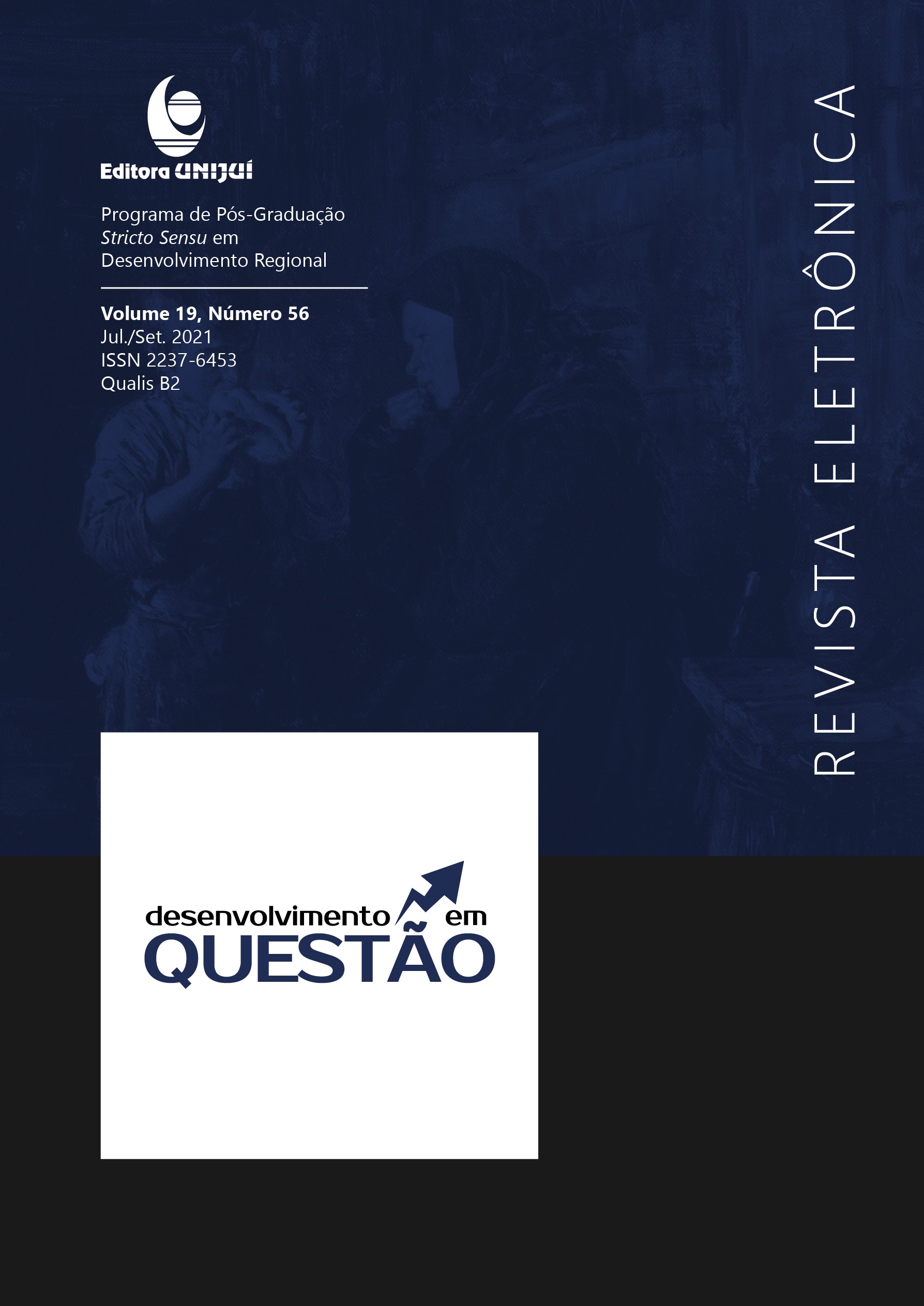SOCIAL TECHNOLOGIES AND THE WAYS TO PRODUCE AND LIVE IN THE INDIGENOUS VILLAGE GYRÓ
SOCIAL TECHNOLOGIES AND THE WAYS TO PRODUCE AND LIVE IN THE INDIGENOUS VILLAGE GYRÓ
DOI:
https://doi.org/10.21527/2237-6453.2021.56.11126Keywords:
Colonization. Indigenous issue. Social technologies. Produce and live.Abstract
The article presented here aims to reflect the ways of producing and living of the indigenous Kaigang, considering the practices and knowledge of the collectivity of Gyró village, located in the rural interior of the county of Pelotas, Rio Grande do Sul. Indigenous practices and knowledge are considered here as social technologies that need to be rescue, resigned and visualized as strategies against hegemonic in the face of the dominant logic. The study consisted of na exploratory research that combined bibliographic research, documentary research and empirical research with participatory methodological perspectives such as participant observation. The article consists of three sections: in the first section we will deal with the indigenous issue in Brazil from a historical and post-colonial point of view; in the second section we conducted an approach on the importance of Kaigang cosmology for the production of social technologies and in the third and final section we brought some results of the research reflecting on the limits and challenges of the Kaigangs indigenous in ensuring their ways of producing and living in the new territory.
Downloads
Published
How to Cite
Issue
Section
License
By publishing in Revista Desenvolvimento em Questão, authors agree to the following terms:
All works are published under the Creative Commons Attribution 4.0 International License (CC BY 4.0), which allows:
Sharing — to copy and redistribute the material in any medium or format;
Adaptation — to remix, transform, and build upon the material for any purpose, even commercially.
These permissions are irrevocable, provided that the following terms are respected:
Attribution — authors must be properly credited, a link to the license must be provided, and any changes made must be indicated.
No additional restrictions — no legal or technological measures may be applied that legally restrict others from doing anything the license permits.
Notices:
The license does not apply to elements that are in the public domain or covered by legal exceptions.
The license does not grant all necessary rights for specific uses (e.g., image rights, privacy, or moral rights).
The journal is not responsible for the opinions expressed in the articles, which are the sole responsibility of the authors. The Editor, with the support of the Editorial Board, reserves the right to suggest or request modifications when necessary.
Only original scientific articles presenting research results of interest that have not been previously published or simultaneously submitted to another journal with the same purpose will be accepted.
Mentions of trademarks or specific products are intended solely for identification purposes and do not imply any promotional relationship by the authors or the journal.
License Agreement (for articles published from 2025 onward): Authors retain the copyright to their article and grant Revista Desenvolvimento em Questão the right of first publication.











